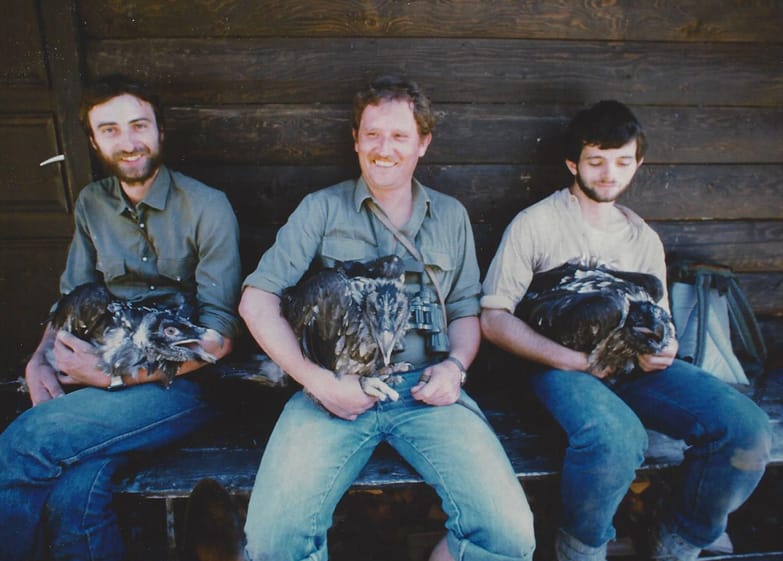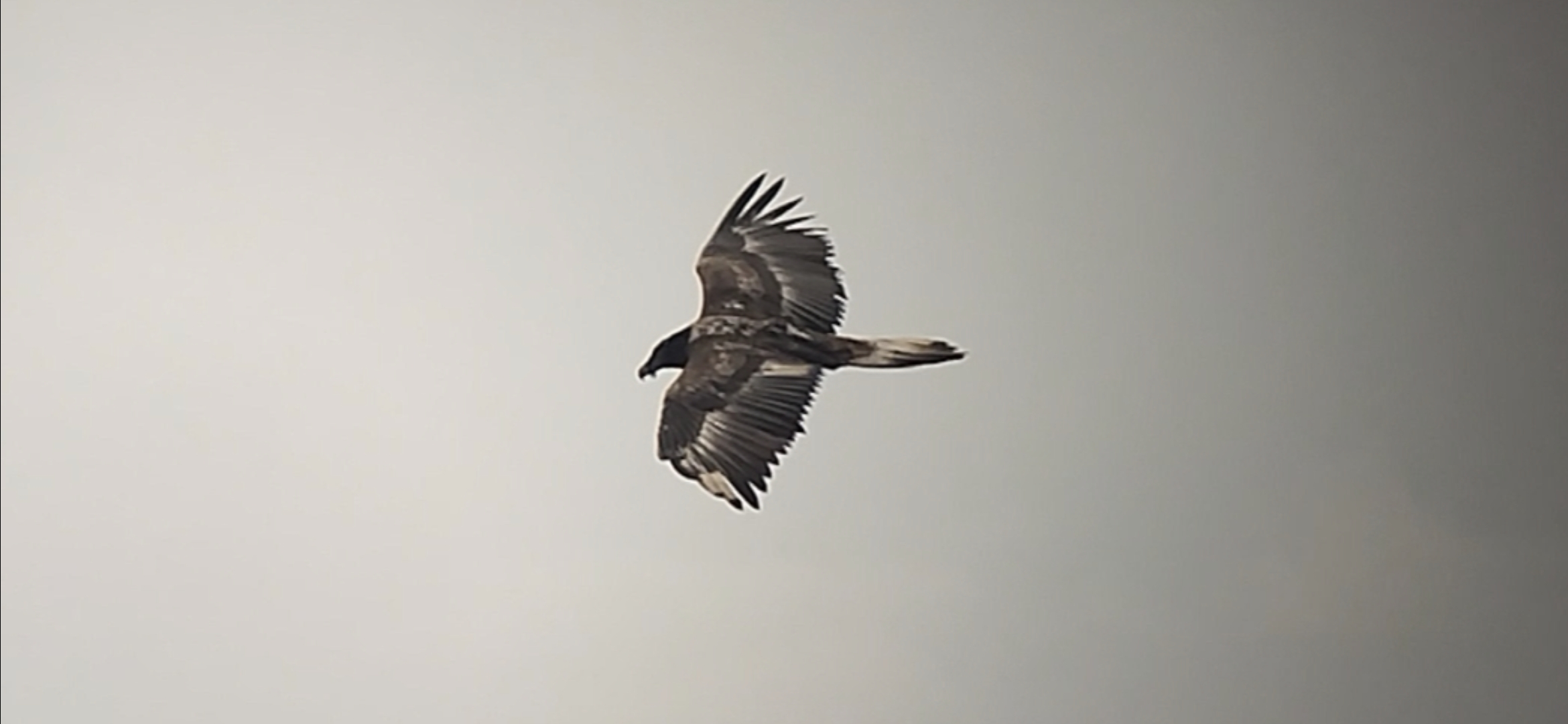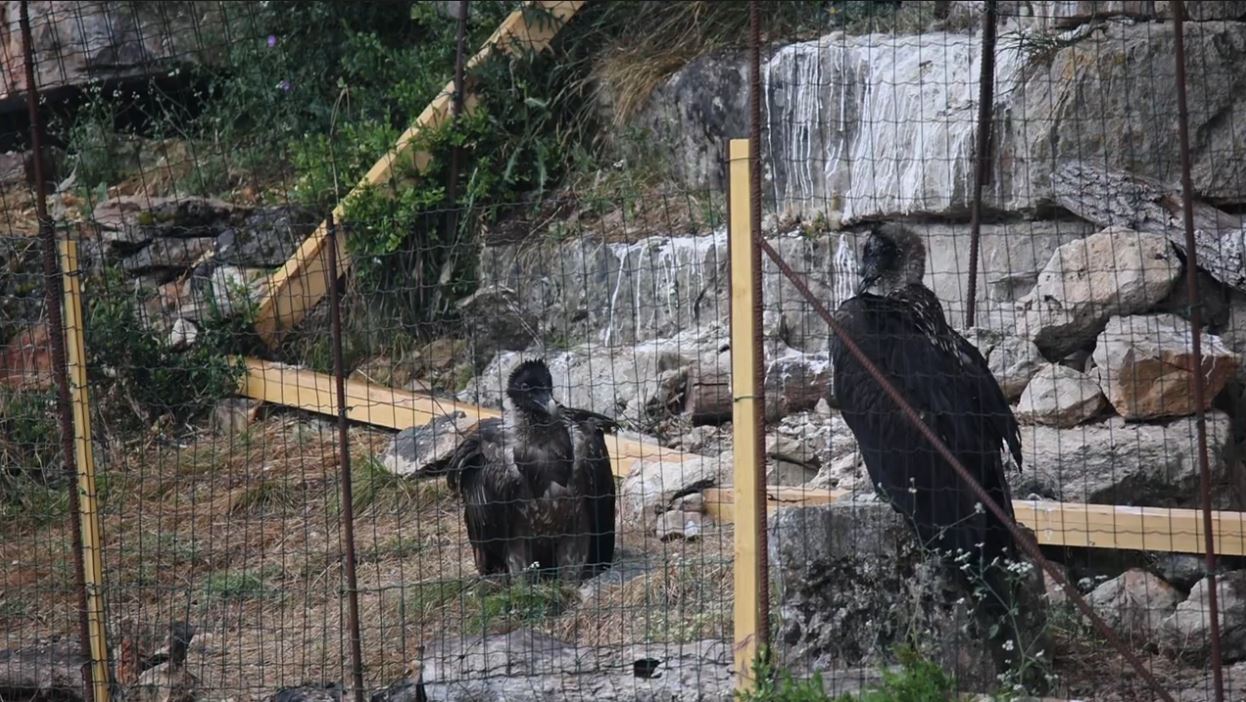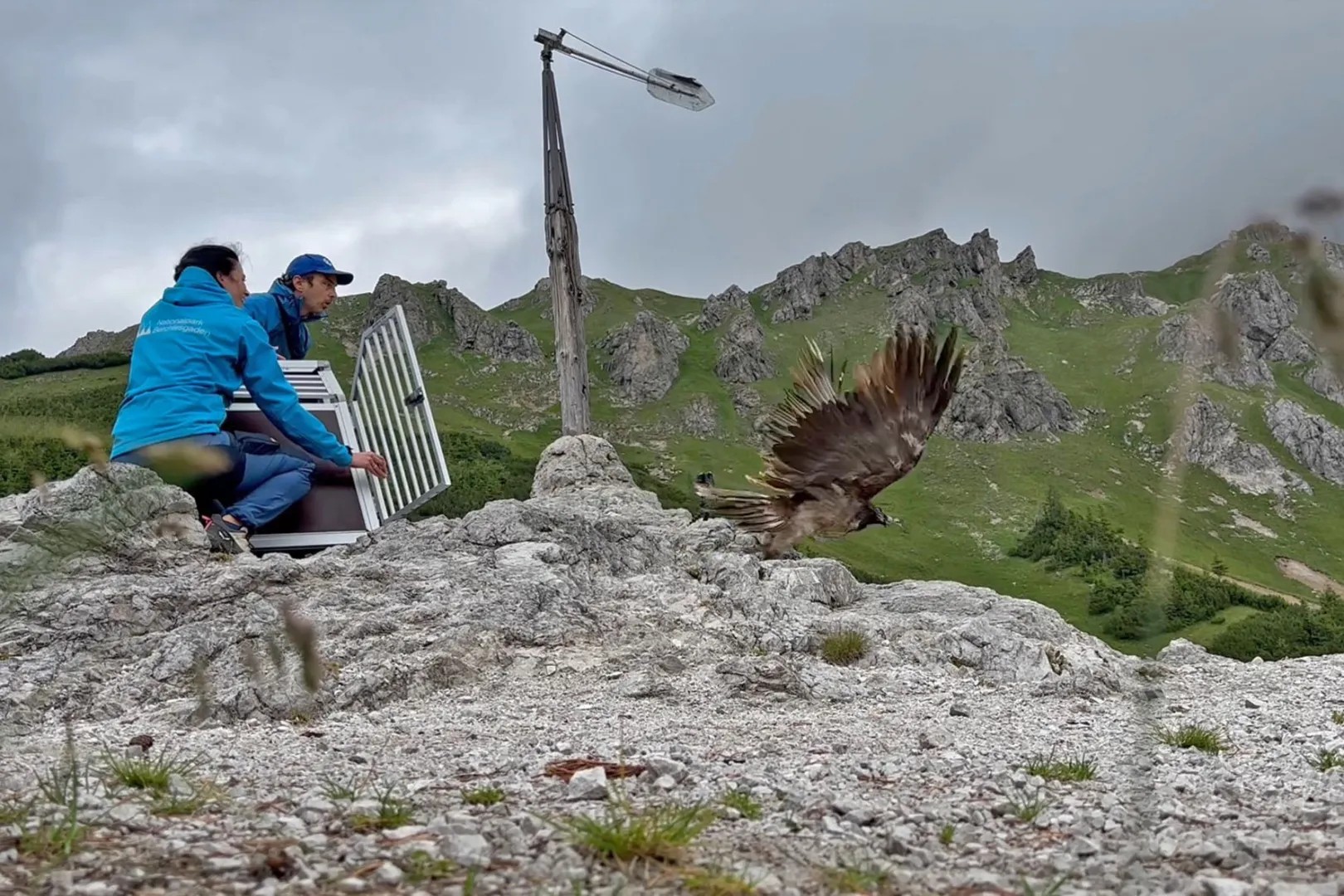
Since the first clutch of the Bearded Vulture breeding season was laid by a pair in the Guadalentín Specialised Breeding Centre (Centro de Cría del Quebrantahuesos de Cazorla) in Andalucía at the beginning of December, the population of Bearded Vultures in zoos and breeding centres that make up Bearded Vulture Captive Breeding Network have been busy.
Bearded Vulture Breeding Season
Bearded vultures are the earliest breeders of the four European species of vultures, timing the raising of their young to coincide with the early Spring when there is potentially a rich supply of food (due to the complications of births and harsh conditions that cause fatalities among the mountain herbivores, and the beginning of the deicing in European mountains, that exposes many dead animals frozen in the snow). Breeding behaviour and pair bonding rituals, such as nest building and mutual preening, is observed in the wild from early November, while egg laying starts in late December and continues up until February.
Breeding in captivity
Just like their wild relatives the population of captive Bearded Vultures in the Breeding Network we manage (currently composed of of 37 zoos, five specialised breeding centres and two private collections) also began their breeding season at around the same time, with the first clutch being laid by a pair at the beginning of December.
There are 42 pairs of Bearded Vultures laying eggs in our network, out of a total of 175 birds. So far this breeding season 19 pairs have began breeding and 31 eggs have been laid. Birds in zoos such as the Czech Republic’s Ostrava Zoo and Liberec zoo as well as several pairs at Austria’s Richard Faust Breeding Centre and Spain’s Vallcalent and Guadalentín Specialised Breeding Centres are all currently incubating eggs.
A breeding pair at the Green Balkans Wildlife Rescue Centre incubating their egg
Releasing Bearded Vultures into the wild
In 2018 we released 13 captive-bred birds across five different regions of Europe (France’s pre-Alps, Spain’s Andalucía and Maestrazgo regions, the Swiss Alps and Austria), and the successful breeding of the birds in the Bearded Vulture Captive Breeding Network is vital for the success of these reintroduction projects. We are currently finalising plans for the release strategy in 2019 and hope, thanks to the efforts of all those involved in caring for the captive-birds, that this breeding season will be the most successful yet!
The Bearded Vulture Captive Breeding Network
This network of 37 mostly European zoos, five specialized breeding centres and two private collections, that are home to the 175 birds are part of the Bearded Vulture European Endangered Species Programme organised under EAZA (European Association of Zoos and Aquaria). This captive breeding programme has been the foundation for the successful reintroduction of the bearded vulture across Europe. Since starting in 1978 we have coordinated this collaboration of different organisations which aims to restore the bearded vulture to its former range across Europe.




